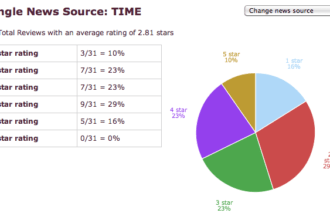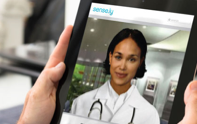The new darling of the online educational
The new darling of the online educational community is Massively Open Online Courses (MOOCs). The example which figures most prominently in the popular imagination is the Khan Academy, though its founder says otherwise, noting that MOOCs are merely online transplantations of traditional courses, while Khan Academy offers something different.
Others would take issue with his conclusion, or characterization. A “connectivist” MOOC is based on four principles:
- Aggregation. The whole point of a connectivist MOOC is to provide a starting point for a massive amount of content to be produced in different places online, which is later aggregated as a newsletter or a web page accessible to participants on a regular basis. This is in contrast to traditional courses, where the content is prepared ahead of time.
- Remixing, that is, associating materials created within the course with each other and with materials elsewhere.
- Re-purposing of aggregated and remixed materials to suit the goals of each participant.
- Feeding forward, sharing of re-purposed ideas and content with other participants and the rest of the world.
Sounds great, but is it working? Can it work? A piece in the current issue of The Washington Monthly took a look and concluded:
Given the current 90 percent dropout rate in most MOOCs, an 8-point gap in completion rates between traditional and online courses offered by community colleges, the 6.5 percent graduation rate even at the respected Western Governors University, and the ambiguity of many other higher education reform ideas, there’s good reason to think that an unbound future might not be so great.
The best American innovations in education were the Land-Grant College Act of 1862, which helped create a system of public universities, and the GI Bill of 1944, which ensured that an entire generation had the money to attend college. This widespread access to the college experience enabled people from working-class backgrounds to advance en masse into professional jobs that required reasoning and logic and extensive knowledge of the world. The question is whether or not we will continue this trend or simply give up and say that a few online classes and specialized training are good enough for the majority of Americans.
In other words: Democratization of higher education – good; MOOCs – not so much.
Why is this relevant to you, gentle reader?
The question is whether the promise of MOOCs, or their inability to deliver, will characterize MOOM — Eric Topol’s neologism, “Massively Open Online Medicine,” used in his HIMSS 2013 keynote.
In health care, a perfect implementation of big data and data analytics, combined with open access for clinicians and patients, would yield a success in MOOM along the lines of a connectivist MOOC.
We are not there yet, but Topol (who, by the way, has joined me and a growing number of others as a member of The Walking Gallery, dedicated to very relevant themes of patient empowerment and data liberation … see his jacket, Bursting from Within and mine, Friendship Pins) continues to call for a move to population health practiced based on individualized information, which would tend to rely on a population of quantified self adherents and e-patients. Unfortunately, at present these are vanguard groups, the minority blazing the way for the majority. There are numerous initiatives afoot seeking to leverage big data, analytics and the health care system to provide population health (a more traditional example: the Accountable Care Organization). Indeed, the future probably holds an even more radical shift away from the health care delivery system as we know it today (Topol spreads the meme of 80% of physicians not being needed in the future) with home-based and wearable sensors replacing much of the current way of practicing diagnostic medicine.
Given the FDA’s recent smoke signals about mHealth guidance being issued in the near future, perhaps that future is in fact inching closer, but it seems to me that it will take some time before the democratization of medicine, or health care, or health can truly take hold. The current health care data privacy and security rules — like so many regulatory constructs — are designed to fight the last war, not for the current field of maneuver. Technology, delivery systems and rules all need to change before real improvement can bloom. Just as in the case of education there remains a high value in traditional higher education that has not yet been replicated in the MOOCs, MOOM has not yet delivered on its promise.
Here’s hoping we don’t have to wait as long as the time between the land grant college act and the GI Bill.
David Harlow
The Harlow Group LLC
Health Care Law and Consulting






